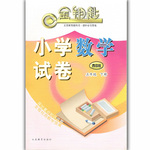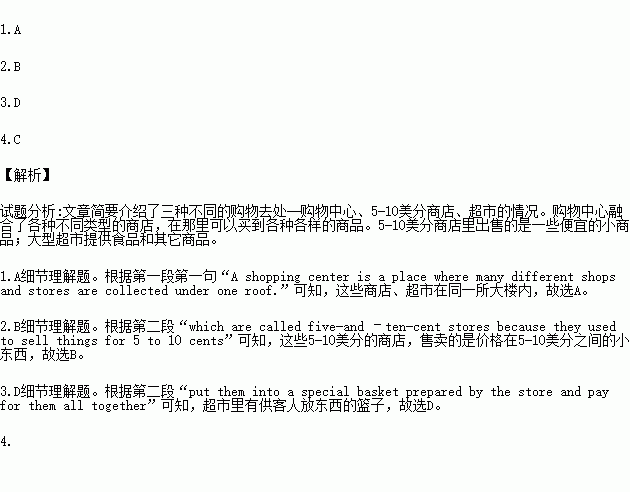题目内容
A shopping center is a place where many different shops and stores are collected under one roof. You can buy everything there and there are also banks, restaurants and, sometimes, a post office.
There are other places in the United States which are called five-and –ten-cent stores because they used to sell things for 5 to 10 cents. Today they sell almost anything and some of the things cost several dollars. Supermarkets are found in all the cities. They sell food and many other goods. You walk around the supermarket, choose the things you want, put them into a special basket prepared by the store and pay for them all together at the door. Supermarkets often stay open later than other stores.
Stores are usually open every day of the week except on Sunday. Some close on Saturdays in July and August.
1.The shops and stores in a shopping center are .
A. in the same building B. on the top of a big roof
C. close to your house D. near banks and restaurants
2.A five-and-ten-cent store usually sells .
A. expensive things
B. small and cheap things
C. things worth many dollars
D. everything you need in the house
3.________have baskets ready for people to carry the things they are going to buy.
A. Shopping centers
B. Fine stores in America
C. Five-and-ten-cent stores
D. Supermarkets
4.Which of the following can be the topic of the article?
A. What a shopping Center is?
B. Why people like supermarkets?
C. Three types of places for shopping.
D. Old and new stores.
 金钥匙试卷系列答案
金钥匙试卷系列答案
